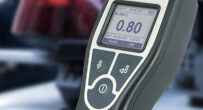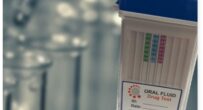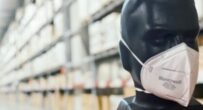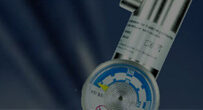Drug Testing in the Workplace
Australian industrial courts and tribunals now accept that random drug testing by employers is an intrusion of an employee’s privacy and can only be legitimised on work, health and safety grounds.
Under work, health and safety legislation an employer can legitimately introduce drug testing in the workplace under certain circumstances. Employers can argue that they have a duty of care to all employees, to try and eliminate the risk that an employee might come to work impaired by alcohol or other drugs and pose a risk to the health and safety of fellow employees. Beyond that, no employer has the right to dictate what drugs or alcohol its employees use in their own time.
Frequently Asked Questions:
What is a drug test?
Drug testing looks for traces of drugs in the body. Most tests in Australia ask you to provide samples of breath, urine or saliva. Drug testing can only let the testers know if you have used drugs, but not the amount taken, not when they were taken or if you are impaired, except for alcohol breath testing that measures impairment.
Why does alcohol testing measure impairment?
This is because there is scientific evidence that shows a blood alcohol reading of 0.050 or higher indicates impairment. Alcohol breath testing is interested in removing impaired drivers off the road or from operating heavy machinery. You can drive with alcohol in your system as long as the level is below impairment level. Whereas it is illegal to drive with illicit drugs in your system, impairment is not the issue.
What type of employers do random drug testing?
You are more than likely to be randomly tested if you work in manufacturing using heavy machinery, mining industry, transport industry, heavy vehicles, or passenger transport, or work in Corrections.
What Happens if I refuse or Test Positive at Work?
If your employment contract explicitly outlines your employer’s company policy which requires all or some employees to submit to random or regular drug testing and you refuse to be tested it could be argued to the Fair Work Commission that you refused to obey a lawful and reasonable direction given to you by your employer and that may be grounds for dismissal.
If you do submit and test positive this doesn’t mean you will automatically be sacked. The Fair Work Commission has set down guidelines that employers must follow. Your employer must discuss with you that you tested positive and develop a plan on what action they intend to take. In most cases if you test positive you will receive formal counselling. If you continue to fail future drug tests your employer will then enter into a procedure that may result in your termination. The recommended steps are outlined here (pdf).
I am positive the results are wrong. What can I do?
Remember you can also ask to be retested as drug tests are not 100% accurate and you have the right to challenge a decision you feel is wrong. If you are a union member you may be able to get assistance from them or you can speak to a lawyer for legal advice. The Community Legal Centre website has a list of where you can get free legal advice.
What other organisations or services may ask me to undergo drug testing?
Police use random drug testing to detect if a driver is under the influence of alcohol while driving or has taken drugs recently.
Sporting bodies may ask athletes to undergo random testing to detect drugs that are not permitted while competing in certain sporting competitions.
Drug treatment services, like opiate substitution therapy (OST) programs, often ask patients to undergo random drug testing. These tests are usually used to see how people are still using illicit drugs and inform medical decisions like takeaways.
Random drug tests may be ordered by Courts for example the Family Court, the results are often used to help legal decisions in custody cases.
For more information about drug testing check out: Alcohol and Drug Foundation or Work Cover NSW (or in your state).

 Breathalysers
Breathalysers
 Drug Testing
Drug Testing
 Combo Kits & Safety Products
Combo Kits & Safety Products
 Calibration & Services
Calibration & Services
 Stay Current with Our Latest Training Techniques
Stay Current with Our Latest Training Techniques